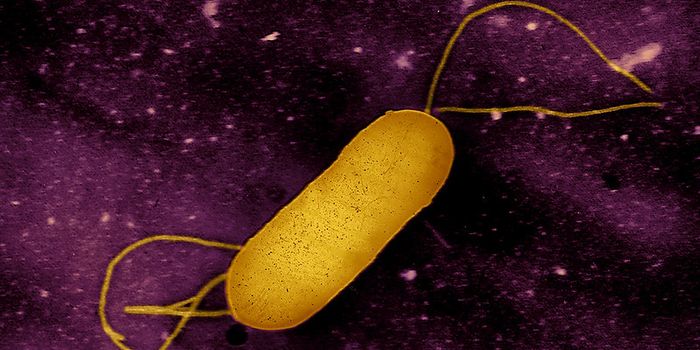Inhibition of a Specific Enzyme Could be a Way to Treat Glioblastoma
Researchers may have identified a new treatment target for a deadly form of brain cancer. Inhibiting an enzyme called PRMT5, which is critical to the control of a network of proteins that are involved in cell growth and division, could be a way to stop glioblastomas from growing. Reporting in Nature Communications, scientists were able to stop this brain cancer from proliferating in a cell culture model by interfering with the enzyme's activity.
When PRMT5 was inhibited, it caused cells to become senescent, which basically makes them cease to grow. The hallmark of cancer cells is uncontrolled growth, so this may be a way to stop them in their tracks.
Glioblastoma is a deadly cancer, with only about ten percent of those who are diagnosed surviving longer than another five years after that happens. There are few therapeutic options. Though previous work has indicated that PRMT5 inhibition could be a way to treat some types of cancer, the strategy has never been tested in cell lines that are derived from patient's tumor cells that have stem cell characteristics; these cells seem to be at the core of glioblastoma growth and they can encourage therapeutic resistance.
"We used a different strategy to stop cancer cells from proliferating and seeding new tumors," said study co-author Dr. Cheryl Arrowsmith, who leads the University of Toronto site of the International Structural Genomics Consortium.
"By inhibiting one protein, PRMT5, we were able to affect a cascade of proteins involved in cell division and growth. The traditional way of stopping cell division has been to block one protein. This gives us a new premise for future development of novel, more precise therapies."
"This strategy also has the opportunity to overcome the genetic variability seen in these tumors," said study co-author and Neurosurgeon Peter Dirks of the Hospital for Sick Children (SickKids). "By targeting processes involved in every patient tumor, which are also essential for the tumor stem cell survival, we side-step the challenges of individual patient tumor variability to finding potentially more broadly applicable therapies."
In this work, the scientists also tested the effect of small molecules that are meant to inhibit cellular enzymes. They exposed cell lines created from patient tumor samples to these molecules and found some were halting the growth of these patient-derived stem-like cells and inhibited PRMT5. Many available treatments don't target these cells, which may be why cancer can recur.
Drugs based on this approach are still a long way from use in the clinic, cautioned the researchers. One problem is that these drugs will have to be demonstrated to be safe for use in the brain, and they will have to be able to access tumors there. The researchers did find a molecular pattern that may one day indicate who could benefit from such a treatment.
"Right now, we have too few medicines to choose from to make precision medicine a reality for many patients," said Arrowsmith. "We need basic research to better understand the mechanism of action of drugs, particularly in the context of patient samples. This is what will help us develop the right drugs to give to the right patients to treat their specific tumors."
Sources: AAAS/Eurekalert! via University Health Network, Nature Communications









